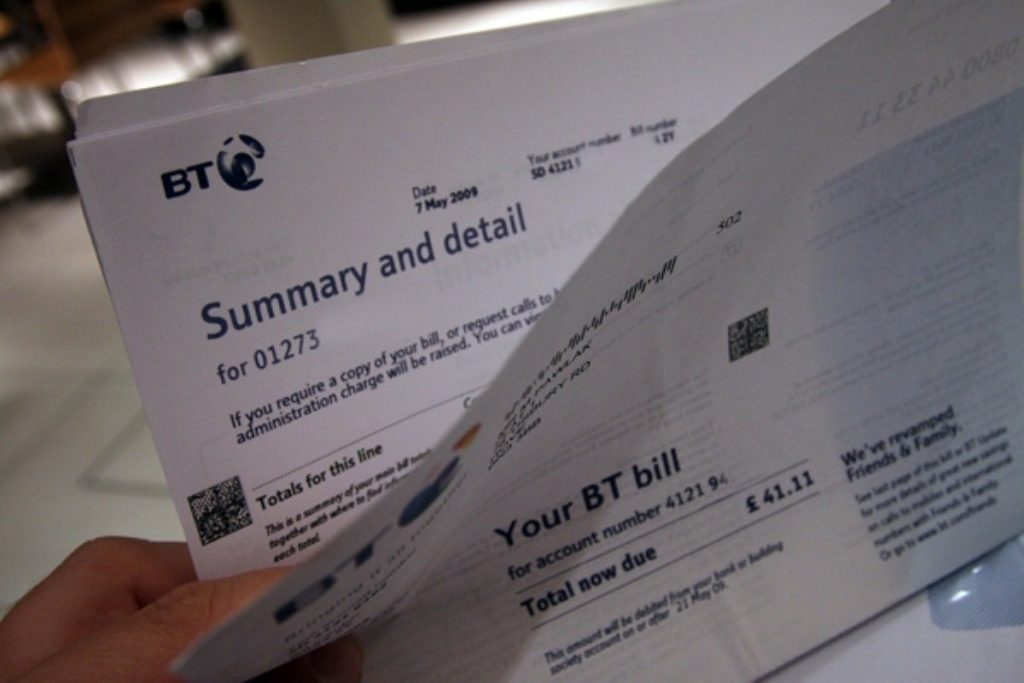Why are taxpayers paying for BT’s broadband lines while it makes £2.4bn profit?
The spotlight over unjustifiable charges turned from energy firms to mobile operators and internet providers today, as Downing Street called company heads to Westminster.
But David Cameron's efforts to get on the front foot in the cost-of-living debate was beset by questions about taxpayer subsidies for private firms.
"Households spend an average of £97.62 per month on telecoms services, including £32.21 on mobile bills and £10.78 on internet," Labour shadow communications minister Helen Goodman said.
"Yet mobile companies are getting £150 million of taxpayers' money for the Mobile Infrastructure Project and BT is getting £1.2 billion in public money for their broadband programme.


"The government must make sure we are getting the best deal for consumers."
The taxpayer funding of the broadband lines used by BT come despite research suggesting the firm made up to £5 billion over and above the level deemed acceptable under regulator Ofcom’s own rules.
The Vodaphone-commissioned research by Frontier Economics suggested profits stood at twice the amount BT has committed to investing in its fibre network.
The firm made a pre-tax profit of £2.4 billion last year.
BT will go into discussions with government sources in Whitehall today, alongside fellow internet providers BSKyB, Virgin and TalkTalk.
They will also be accompanied by mobile phone operators EE, O2, Vodafone and 3 at the summit.
The meeting will see government sources try to secure a quick headline-grabbing result, as the coalition attempts to emulate Ed Miliband's success on energy prices as part of the so-called cost of living crisis.
Any announcement is likely to centre on mid-contract price rises and assurances that price inflation will be kept under control.
TalkTalk prices rose in October and Virgin Media has announced a 6.7% price hike in February.
BT broadband services will rise by 6.5% for most customers in January.









